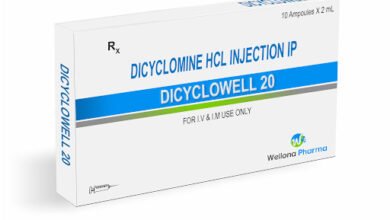Early Signs/Symptoms of Pregnancy

Every woman is different. So are her experiences of pregnancy. Not every woman has the same symptoms or even the same symptoms from one pregnancy to the next.
Also, because the early symptoms of pregnancy often mimic the symptoms you might experience right before and during menstruation, you may not realize you’re pregnant. The following early signs and symptoms of the pregnancy checklist are only a guideline. Many early pregnancy symptoms can appear similar to routine pre-menstrual discomforts.
Tender, swollen breasts
Your breasts may provide one of the first symptoms of pregnancy. As early as two weeks after conception, hormonal changes may make your breasts tender, tingly, or sore. Or your breasts may feel fuller and heavier.
Darkening of the areola
The areola, or area around the nipple, may darken in color.
Skin changes
You may notice skin pigmentation changes, such as the darkening of the skin around your nipples, dark patches on your face, or the appearance of a dark line from your navel to your pubic bone.
Flatulence
Progesterone is a funny thing, even in early pregnancy, it can cause big changes to your body. It causes your muscles to relax and this includes the muscles in your intestines, so your digestion can slow down. This can cause bloating, burping, and passing wind.
Feeling very tired

Fatigue and tiredness also ranks high among early symptoms of pregnancy. During early pregnancy, levels of the hormone progesterone soar. In high enough doses, progesterone can put you to sleep. At the same time, lower blood sugar levels, lower blood pressure, and increased blood production may team up to sap your energy during your pregnancy.
More prominent veins
As the uterus expands to make room for the growing fetus, pressure can be placed on the inferior vena cava which is the large blood vessel that runs down the right side of your body. This reduces blood flow to the legs causing varicose veins. But it doesn’t stop there! Some women experience these in their vulva (“vulval varicosities”) or even worse afflictions known as “hemorrhoids”. Early in pregnancy, some women liken their breasts to “road maps” due to the added prominence of these blue veins.
Slight bleeding or cramping

Sometimes a small amount of spotting or vaginal bleeding is one of the first symptoms of pregnancy. Known as implantation bleeding, it happens when the fertilised egg attaches to the lining of the uterus – about 10 to 14 days after fertilisation. This type of bleeding is usually a bit earlier, spottier and lighter in colour than a normal period and doesn’t last as long. Some women also experience abdominal cramping early in pregnancy. These cramps are similar to menstrual cramps.
Nausea with or without vomiting
Morning sickness, which can strike at any time of the day or night, is one of the classic symptoms of pregnancy. For some women, the queasiness begins as early as two weeks after conception. Nausea seems to stem at least in part from rapidly rising levels of estrogen, which causes the stomach to empty more slowly. Pregnant women also have a heightened sense of smell, so various odors – such as foods cooking, perfume, or cigarette smoke – may cause waves of nausea in early pregnancy. There are some hints and tips to help combat the effects of morning sickness.
“It’s worse when the stomach is completely empty. Having a pack of biscuits by the bed to make sure you are never completely hungry can help.
“Eating ginger or drinking ginger tea or ginger beer helps most expecting mums as well. In extreme cases chat to your GP or obstetrician about anti-nausea medications that are completely safe for you to take even during the earliest months of your pregnancy.”
Food aversions or cravings

When you’re pregnant, you might find yourself turning up your nose at certain foods, such as coffee or fried foods. Food cravings are common too. Like most other symptoms of pregnancy, these food preferences can be chalked up to hormonal changes – especially in the first trimester, when hormonal changes are the most dramatic.
There’s no proof that what you are craving is a sign of what your body needs for the baby. For example, drinking two liters of orange juice a day doesn’t mean you’re Vitamin C deficient.
Be sensible with your eating during pregnancy. Sure, spoil yourself every now and again, but you aren’t eating for two. Eat the best foods you can eat for yourself, and baby will take all the nutrients it needs.”
Headaches

Early in pregnancy, increased blood circulation caused by hormonal changes may trigger frequent, mild headaches.
Constipation
Constipation is another common early symptom of pregnancy. An increase in progesterone causes food to pass more slowly through the intestines, which can lead to constipation.
RELATED: What is Diarrhea?
Frequent urination
Two to three weeks after conception you may notice an increased need to pee. This new gotta-go feeling usually crops up two to three weeks after conception and is due to the pregnancy hormone hCG, which increases blood flow to your kidneys, helping them to more efficiently rid your body (and, eventually, your baby’s body) of waste.
Your growing uterus is also beginning to put some pressure on your bladder, leaving less storage space for urine and making you head for the toilet more frequently.
Mood swings
The flood of hormones in your body in early pregnancy can make you unusually emotional and weepy. Mood swings also are common, especially in the first trimester.
Faintness and dizziness
As your blood vessels dilate and your blood pressure drops, you may feel lightheaded or dizzy. Early in pregnancy, faintness also may be triggered by low blood sugar.
Metallic taste in the mouth
Many women find that in the first few weeks of pregnancy their taste buds are affected. Some people say it’s a metallic taste, others say it’s sourer. The taste is actually something called dysgeusia, and it is caused by pregnancy hormones, particularly estrogen. It isn’t dangerous and usually disappears after the first trimester.
Stuffy nose
A blocked sinus is often an early sign of pregnancy. An increase in estrogen levels can make the sinus passages swell and produce more mucous. If you think you might be pregnant be sure to speak to a doctor before taking any decongestants.
Smell sensitivity

A heightened sense of smell is an early pregnancy symptom that makes previously mild odors strong and unappealing. Since it’s one of the first symptoms of pregnancy many women report, babies might be in the air if your sniffer’s suddenly more sensitive and easily offended.
Raised basal body temperature
Your basal body temperature is your oral temperature when you first wake up in the morning. This temperature increases slightly soon after ovulation and remains at that level until your next period. If you’ve been charting your basal body temperature to determine when you ovulate, its continued elevation for more than two weeks may mean that you’re pregnant.
Missed Period
Perhaps the most obvious early symptom of pregnancy is when you’ve missed your period. This possible sign of pregnancy is often what causes women to search for more details about other pregnancy symptoms.
Some women might only experience a much lighter period compared to their usual. You might not experience any of the pregnancy signs listed below until around the time you notice you’ve missed your monthly cycle.
Vivid dreams and nightmares

Those pesky hormones have been blamed for an increase in vivid dreams and nightmares too. But there is also another explanation. A pregnant woman’s sleep is often broken during pregnancy, whether it’s from those midnight bathroom runs, baby movement or cramps. And the more recent a dream is, the more likely it will be remembered.
Bleeding gums or a bleeding nose
Due to an increase in hormones, gums are more likely to become inflamed and bleed when brushed or flossed. The blood vessels in the nose can also expand during pregnancy, increasing the risk of nose bleeds.
Just “Feeling” Pregnant
This early pregnancy symptom may be the reason why you are checking this list right now. Many women believe they have an intuition about pregnancy signs. Their intuition is often proven correct.
Maybe you just feel different; tired, moody, queasy, lightheaded. You may also have heartburn, constipation, or find yourself making more frequent trips to the toilet. Perhaps you feel a dull ache or stiffness in your lower back, you have sore breasts or they seem overly sensitive, or you are simply not feeling like your usual self.
How soon do early pregnancy symptoms start?
Some women may experience early signs and symptoms within the first weeks of pregnancy in the first trimester, while others may develop symptoms later on in the pregnancy. The first signs and symptoms of early pregnancy can also be similar to symptoms experienced prior to the menstrual period, so a woman may not recognize the symptoms as related to pregnancy.
Conclusion
A pregnant woman could have all of these symptoms or maybe have only one or two. Unfortunately, many of these signs and symptoms aren’t unique to pregnancy. Some can indicate that you’re getting sick or that your period is about to start. If any of these symptoms become bothersome, talk to your doctor about these symptoms so you can make a plan to offset them.



